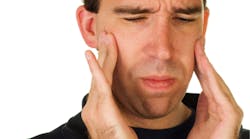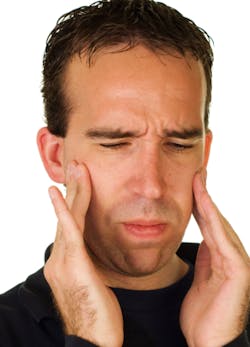Managing the workers’ compensation dental claim
Sometimes the answer to “How did you lose that tooth?” reveals that the injury occurred while the patient was on the job. Work-related injuries are covered under the state’s workers’ compensation system. Managing a workers’ compensation dental claim can seem complicated at first, but it's a source of income for the practice and is certainly an instance when a patient needs good dental care. Another benefit of treating workers’ compensation cases is that these patients may not have a regular dentist, and they might become new patients for your practice.
Here we'll discuss what dentists need to know for treating these types of injuries, resources for assistance in observing workers’ compensation guidelines, developing the clinical plan, and filing proper paperwork for payment.
What to know about workers’ compensation dental claims
1. Identifying the workers’ compensation case—When patients visit the practice, there are several clues to look for to determine if their problems occurred on the job. Paperwork for new patients, such as the American Dental Association (ADA) form, often asks if a dental problem occurred at work. If the dental injury was caused by trauma, it’s important to ask, “How did these teeth get knocked out?” or “How did you get that chipped tooth?” If a patient presents with a dental complaint that isn’t trauma, a clinical exam can be performed to determine causation to find out if it is, in fact, a work-related injury.
2. Getting guidance at the start of the claim—There are services that can assist dentists at the outset of a workers’ compensation claim to ensure that all proper procedures are followed and to expedite payment. If the dentist is not already in a workers’ compensation provider network, the service can credential the dentist and initiate the discussion with the workers’ compensation payer so that the claim is quickly approved.
RELATED READING:4 steps to prevent employee injuries and illnesses in your dental practice
3. Workers’ compensation regulations are state-specific—Usually a patient will be a resident in the state where the practice is located. Occasionally, a patient may reside in another state. If this is the case, be aware that the prevailing guidelines will be those in which the patient lives and works.
4. The biggest difference between a workers’ compensation claim and other treatment plans is that workers’ compensation covers clinical care only for the work-related injury—As dentists know, teeth perform three vital functions: they enable a person to speak and eat, and they support facial structure. When someone is injured on the job and any of these capabilities become compromised, the employer or workers’ compensation payer is tasked with restoring that functionality to pre-injury status if possible.
5. While a dentist might normally complete a treatment plan say, for example, three cavities, periodontal disease, gingivitis, and a chipped tooth, for a workers’ compensation injury that resulted in a chipped tooth, only the repair of that problem will be covered, or compensable—Some conditions that may not usually be associated with workers’ compensation can actually be work-related or related to the treatment for an on-the-job injury. When these conditions are related to a workers’ compensation injury, they become compensable and should be part of the treatment plan. For example, TMJ disorder might result from a workplace accident or may be due to post-traumatic stress. TMJ is one of the most complex and costly dental-related claims. It can affect other muscles, including the back, neck, and shoulders. Patients should be advised to avoid extreme jaw movements, especially if the worker suffered a serious facial and dental trauma.
6. Dry mouth (xerostomia) is reduced or saliva flow is absent—While this is not a disease, it may be a symptom or side effect of various medical conditions or medications. The long-term use of opioids or narcotics, which can be prescribed for a workers’ compensation injury, is often associated with this condition.
7. When assessing the initial injury, it's important to get a patient’s complete history and examine the oral cavity in order to measure the flow rate of saliva—Individuals with dry mouth often complain of problems with eating, speaking, swallowing, and wearing dentures. Dry mouth can be a contributing factor for health problems, affecting nutrition and dental and psychological health. If the initial cause for the TMJ or dry mouth is due to a work-related injury, then these conditions, plus complications that may be caused by these conditions, are compensable.
8. Get the clinical treatment approved—Once a comprehensive clinical treatment plan is developed and the dentist has differentiated what is injury-related and what is a pre-existing condition, the recommendations are sent to the adjuster at the workers’ compensation insurance company for authorization. If the dentist has become part of a workers’ compensation network, the clinical management team will help the adjuster understand the dental services outlined in the plan.
It’s crucial throughout this process to ensure the proper forms and documentation are filled out and provided to adjusters and case managers in a timely manner. Then the treatment plan can be approved quickly and you can move forward without unnecessary delays, which can negatively impact the claim and the recovery of the injured worker.
Workers’ compensation dental claims may seem challenging at first, but keeping these best practices in mind will be helpful when managing a workers’ compensation claim. Experienced clinical partners can provide valuable insights starting at the beginning of a claim and can coach dentists through how best to handle these complex cases in order to produce positive results.


